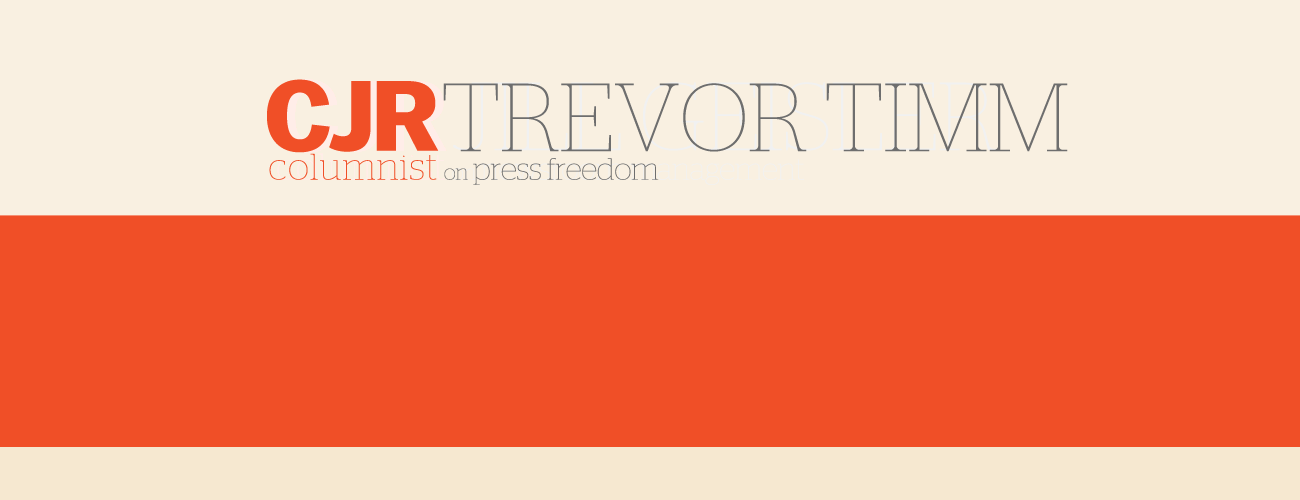Sign up for the daily CJR newsletter.
What, if anything, is constraining the Trump Justice Department in its dangerous war on leakers, whistleblowers, and journalists? The Knight First Amendment Institute at Columbia University and Freedom of the Press Foundation, where I’m executive director, are teaming up to find out.
On Wednesday, we filed a Freedom of Information Act lawsuit against the Justice Department and several intelligence agencies, demanding records revealing how the government collects information on journalists and targets them with surveillance.
ICYMI: A striking detail about NBC’s decision to fire Matt Lauer
Attorney General Jeff Sessions has said criminal investigations into the sources of journalists are up 800 percent. He’s vowed to “revisit” the Justice Department’s media guidelines that restrict how the US government can conduct surveillance on reporters. President Trump reportedly told ex-FBI director James Comey to “jail” journalists. And so far, Sessions has refused to rule out imprisoning reporters for doing their jobs.
Given these developments, “it is urgent that the government disclose records clarifying the precise limitations placed on its surveillance powers to protect the freedoms of speech, association, and the press,” our lawsuit states. “The public has a right to know those limitations and to know whether the government is in fact complying with them.”
So, we’ve demanded that the Justice Department—along with the FBI, DNI, NSA, and CIA—hand over any “documents concerning limitations imposed upon any of the government’s investigative authorities by the First Amendment and documents concerning limitations on the government’s investigative activities to obtain or use records or information of or about members of the news media.”
This information could not be more more crucial for the public’s understanding, given how so many Justice Department leak investigations tread on First Amendment interests. In 2013, after a significant public backlash against the Obama Justice Department’s surveillance of journalists, the Justice Department unveiled new “media guidelines” that supposedly restrict the government from surveilling reporters in all but extreme cases.
ICYMI: The journalist who deserves “special credit” for that stunning WashPo undercover sting story
It was seemingly a win for press freedom, but quietly, Obama’s Justice Department exempted its use of National Security Letters—secret surveillance demands from the FBI for information like call records that do not require a judge’s sign off—from its media guidelines, essentially allowing the government to avoid the media guidelines altogether if it conducted investigations under the guise of “national security” (which, in practice, would encapsulate virtually all leak investigations anyways).
Instead of the normal media guidelines, the FBI apparently had separate—and secret—rules for using National Security Letters to target journalists. Two years ago, Freedom of the Press Foundation attempted to force the Justice Department to release these secret rules as well. While we weren’t successful then, The Intercept published a leaked document from the FBI showing the 2013 version of these secret rules, and how they could be used to completely circumvent the media guidelines.
It was an important story, yet the government refused in court to even acknowledge the leaked document, and we still have no idea what the current rules are or how they are being interpreted and used.
National Security Letters and similar tools are now available to the Trump administration as it ramps up Obama’s already historic level of leak prosecutions. Perhaps worse, the Trump administration has also hinted it wants to change the media guidelines themselves. We still have no information about what it plans on doing—or even if it is following the current rules.
Our Freedom of Information Act lawsuit aims to change that. There’s no reason for the Justice Department or other intelligence agencies to keep secret any rules or potential restrictions they internally have to prevent abuses of the First Amendment. And the only way any of these rules and restrictions can be enforced is if the public has access to them.
Image via Pixabay
ICYMI: Trump might be in serious trouble for his NBC tweets
Has America ever needed a media defender more than now? Help us by joining CJR today.







